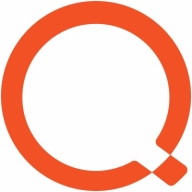

Teradata and Quest NetVault Plus are products competing in the data management and backup industry. Teradata seems to have an upper hand in terms of advanced data processing and scalability, while Quest NetVault Plus excels in user accessibility and backup management.
Features: Teradata excels in processing vast data volumes swiftly with parallel processing and columnar partitioning, significantly enhancing query performance. It provides robust scalability and reliability for extensive data warehousing and complex analytical tasks. However, these comprehensive functionalities often require specialized expertise. Quest NetVault Plus prioritizes accessibility with reliable backup capabilities across systems and databases. Its intuitive interface and integration options promote widespread usability, particularly focusing on data protection.
Room for Improvement: Teradata's areas for improvement include its high pricing, scalability challenges, and integration with newer technologies. An expansion of its cloud offerings and usability could enhance its competitive position. Quest NetVault Plus could improve by offering more granularity in file restoration, enhancing performance speed, and providing more responsive technical support. Potential advancements in its command-line utility and cloud capabilities are needed for broader user appeal.
Ease of Deployment and Customer Service: Teradata offers flexible deployment options, with user preferences often leaning towards on-premises setups. It is praised for advanced technical support and comprehensive documentation. Quest NetVault Plus, primarily deployed on-premises, is effective but can improve support responsiveness and user-friendliness. Both solutions provide strong service; however, Teradata often excels with its comprehensive customer support and cloud compatibility.
Pricing and ROI: Teradata is known for high costs, a potential barrier, but provides substantial performance and ROI for larger deployments. A detailed cost-benefit analysis is vital due to its premium pricing. Quest NetVault Plus is considered affordable with flexible licensing models, making it attractive for midsize to small enterprises. Both products offer strong return on investment, with Teradata targeting more extensive operations and Quest NetVault Plus offering a cost-effective solution for diverse backup requirements.


Quest NetVault Plus is used by organizations for efficient backup in environments such as retail machines, VMware, and virtual servers, including Hyper-V. It supports hybrid environments with Nutanix Xi.
Quest NetVault Plus is designed for backing up databases, applications, and security logs in hybrid environments. It includes a universal backup system with deduplication and allows data path mapping. Users install a client agent on PCs and a server agent for recovery tasks. Commonly used in industries like pharma, Quest NetVault Plus offers a web interface for network-wide access, dashboards for visualization, and reliable stability and reporting features. While appreciated for its backup management and efficient search capabilities, users desire improvements in its web interface and compatibility.
What are the key features of Quest NetVault Plus?In industries like pharma, Quest NetVault Plus is implemented by configuring agents on clients and servers for effective backup and recovery. Its adaptability in hybrid setups with Nutanix Xi enhances server backup management, while its dashboard and reporting capabilities assist in monitoring and optimizing backup workflows across sectors.
Teradata is a scalable data analytics platform designed to meet enterprise demands for large-scale data management and processing, focusing on performance, scalability, and security for complex query executions.
As a leading data warehousing solution, Teradata integrates advanced analytics enabling organizations to derive insights from massive datasets. It supports high-volume data workloads with its architecture optimized for analytical queries. Users benefit from its robust scalability, allowing seamless expansion as data grows. Teradata's SQL engine is compatible with a wide range of data types, ensuring flexibility in data analysis. With advanced security measures, it protects sensitive data across various environments, providing peace of mind to users handling critical information.
What are the most important features of Teradata?Teradata is widely used in industries like finance, telecommunications, and healthcare, where data-driven decisions are critical. Companies leverage its robust analytics capabilities to enhance customer experiences, streamline operations, and ensure compliance with regulatory requirements. In these sectors, quick access to data insights can significantly impact competitive advantage.
We monitor all Backup and Recovery reviews to prevent fraudulent reviews and keep review quality high. We do not post reviews by company employees or direct competitors. We validate each review for authenticity via cross-reference with LinkedIn, and personal follow-up with the reviewer when necessary.